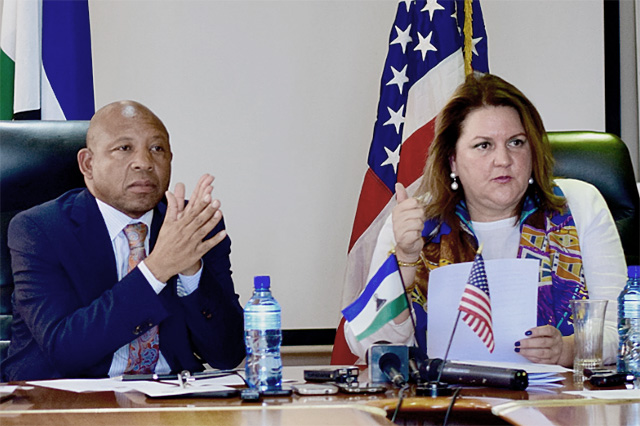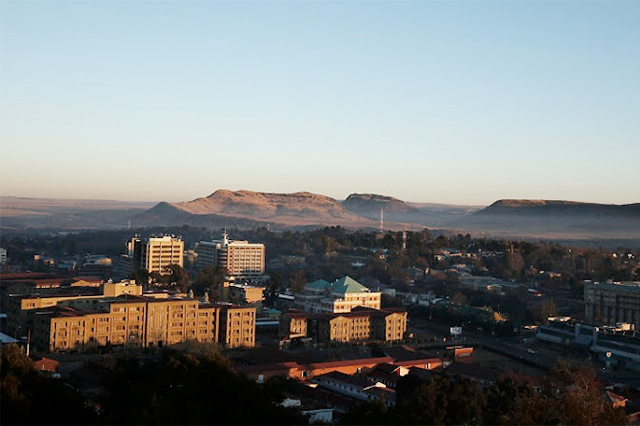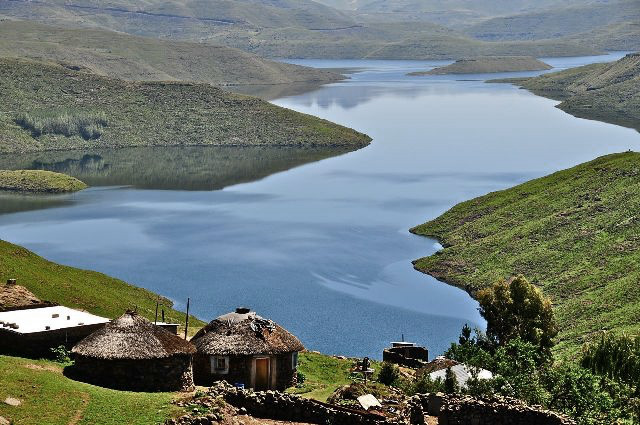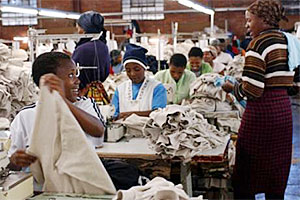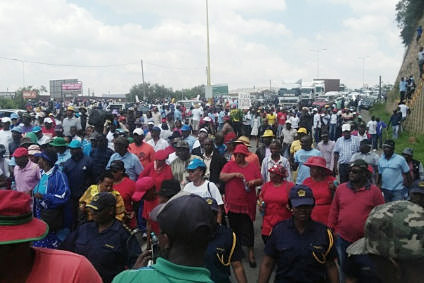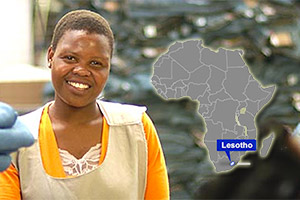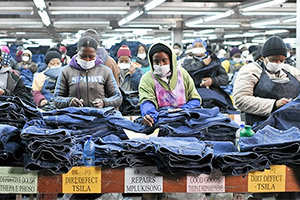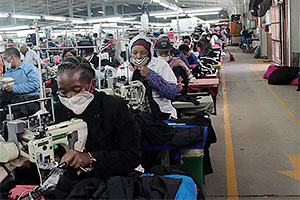Why AGOA remains critical to Lesotho’s development
The US- Africa African Growth and Opportunity Act (AGOA) Forum, which took place from September 22-26, 2016, in Washington DC, USA, was an opportunity for both African countries and the US to reflect on the gains made under AGOA to date.
This was especially important as indications point to the current iteration of AGOA being the last one ahead of a new trade dispensation between the US and Africa from 2025 onwards, punctuated by reciprocal trading relations.
Lesotho is one of the countries that has benefitted and continues to benefit immensely from the AGOA programme, and in particular its textile and apparel industry.
For Lesotho, the AGOA Forum came not too long after the country had gone through an eligibility review process for 2016, which determined its continued eligibility. But what would a withdrawal of AGOA benefits mean in practical terms for Lesotho?
The country’s garment manufacturing industry was established in the early 1980s. The first wave of investment came from South African clothing firms that wanted to avoid anti-apartheid sanctions. A wave of Taiwanese investments followed in the late 1980s. With the introduction of AGOA in 2000, a second wave of Taiwanese textile and apparel investments followed.
Lesotho's textile and apparel manufacturing industry comprises about 50 formal sector firms - 29 of these being dependent upon the export of garments to the US using AGOA preferences. If the AGOA privileges are withdrawn, it is highly likely that most firms (if not all) could close. These 50 firms collectively employ approximately 43,000 workers. About 30,000 of these workers are engaged in the manufacture of garments (and some textiles converted into garments) that are exported to the US under AGOA.
The CIA Fact book shows Lesotho’s labour force to be about 899 100 (2015); about 86% are engaged in subsistence agriculture; 14% in industry / services. The World Bank calculates the unemployment to be 28%; and youth unemployment (age 15-24) stands at about 43%.
Should AGOA be removed, Lesotho would, with some effort, attract replacement investors. This would not happen overnight however. Existing firms would need to close; new investors found; and these investors will have to install manufacturing equipment, and then recruit and train workers. It is estimated these processes could take between 18 and 36 months. In this period those that would have lost their “AGOA jobs” would suffer the most.
The recent uncertainty around Lesotho’s garment manufacturers’ continued ability to access AGOA already resulted in some US apparel buyers shying away from placing orders in Lesotho. The situation has also resulted in some plants suspending their expansion plans, which is unfortunate given that AGOA still has a few more years before its expiry.
Withdrawing AGOA would, however, have an impact beyond the textile and garment industry. Formal and informal sector businesses connected to it will be affected; and in turn, firms linked to these will also be negatively affected. Such include: road freight transporters; clearing and forwarding agents; courier services; factory security guards; telecommunications and IT services providers; water and power utilities; informal street traders who sell food and other goods to factory workers; taxi operators who take workers to and from work; as well as landlords who rent accommodation to workers.
In 2015 Lesotho exported about M10.8bn (about US$771.4m) worth of goods globally. In the same period it imported M21.6bn (about US$1.5bn) worth of goods. Its garment exports to the US during that period amounted to US$300m (M4.2bn at an exchange rate of M14=US$1). In the period January to June 2016, Lesotho exported US$132m worth of garments to the US, while for the same period in 2015 the country exported garments worth US$121m. In contrast, Lesotho exported M1.8bn (US$131m) worth of textiles and apparel (including raw wool/mohair) to South Africa in 2015.
While it may be possible for Lesotho to re-orientate its lost AGOA apparel production exports to the Southern African Customs Union members, this would be a difficult task. In the absence of AGOA, Lesotho may have to find new apparel markets. There are certain markets where Lesotho already exports a fraction of its garments, like Canada and the EU countries (including the UK). A loss of AGOA would also make Lesotho seriously consider diversification away from garment production – perhaps into other production areas which are as labour intensive, and which employ numbers of women. However, this will be a difficult task given the structural challenges Lesotho exporters would face in these non-traditional markets.
Beyond trade, the removal of Lesotho’s AGOA privileges will negatively impact upon the significant social and economic progress that has been made in the country in the past two decades. In 2014, Lesotho’s GDP growth rate was 3.6%, compared to the 2.7% projection for 2015. The World Bank, in an AGOA scenario, anticipates a 2017 growth rate of 3.7%, and 4% in 2018. Looking ahead, the IMF predicts that GDP growth could even be lower than estimates depending on the severity of the current drought. Withdrawing AGOA at this stage, and through 2017/18, would exacerbate the existing drought crisis. The unemployed would be unable to buy bare necessities such as food; and, due to prevailing climatic conditions, they may not be able to grow food to feed themselves. It would be difficult for them to generate agricultural surpluses that could be sold to raise income to buy food and other basics.
About 25 000 of the workers engaged in AGOA apparel production are women (on average, 86% of workers in garment factories are women; 40% of workers in a textile factory are women). Therefore withdrawing AGOA would impact mostly upon Lesotho’s most vulnerable –women.
The country has the second highest HIV/AIDS incidence in the world. About 310, 000 individuals are estimated to be HIV positive in a country with a total population of 2.1m. The gender and age profile of workers in the garment industry is such that women factory workers have an average HIV prevalence rate of 44.7% - peaking at 52.6% for women aged between 30 to 34 years. Opportunistic diseases also pose a challenge, with the World Bank stating that Lesotho has the highest incidence of TB in the world.
It is important to note that should Lesotho lose its AGOA benefits, it would not be the only party to suffer. Lesotho is a landlocked country entirely surrounded by South Africa. Any loss of AGOA privileges would directly impact upon South Africa. Some of South Africa’s border towns adjacent to Lesotho would experience harsh negative economic downturns and South African firms would sell fewer products to Lesotho. In order to find replacement investors Lesotho will most probably look to South Africa. Other Southern African countries will also have been affected. For example, Lesotho’s only textile mill buys cotton lint (in 2015 it was 105 393 bales) from a number of Southern African countries, including: Zimbabwe, Zambia, South Africa, Mozambique and Malawi. In all likelihood, should AGOA go, Lesotho’s AGOA exporters would not relocate to other parts of Africa – but instead would move to places in South East Asia or China.
AGOA is an important programme that has significantly benefitted people and businesses in Lesotho. It has, at the same time, been of enormous value to US apparel brands and retailers. Removing AGOA privileges would not only harm Lesotho’s economy and people’s livelihoods but would also impact upon US businesses that have invested time and resources into developing apparel vendors within the country. The loss of AGOA would also impact upon the regional integration agenda of Southern African.
- Joshua Setipa is the Minister of Trade and Industry in the Kingdom of Lesotho. He was appointed to this position in March 2015. Setipa has over 15 years of experience working on economic and developmental issues. He has substantive field experience in regional economic development in Southern Africa, with particular focus on economic sector reform and regional economic integration. He has extensive experience in multilateral trade issues and impact on African economic integration and economic development. He previously served as Chief Executive Officer of the Lesotho National Development Cooperation (LNDC) between 2012 and 2014.Prior to that, he served in the Cabinet of World Trade Organization (WTO) Director General, Pascal Lamy, from 2005 to 2011.




